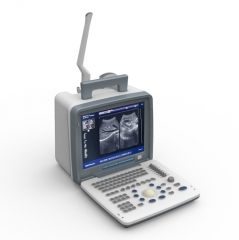china care medical for medical and lab equipment basic knowledge Blog
this is china care medical Blog, it includes some medical and lab equipment basic knowledge and suggestions to buy medical and lab equipment from China, it will be useful for you to save money and save time to buy from China
Portable Ultrasound The Future of Mobile Diagnostic Imaging
By China Care Medical | 11 July 2025 | 0 Comments
A portable ultrasound is a compact, lightweight imaging device that uses high-frequency sound waves to produce real-time images of internal body structures. These devices have transformed traditional diagnostics by providing fast, accurate, and mobile imaging solutions, especially in point-of-care and remote healthcare settings.

1. What Is a Portable Ultrasound?
A portable ultrasound refers to a handheld or cart-based ultrasound machine that provides many of the same functions as conventional units, but with the added benefits of mobility and reduced cost.
Core capabilities include:
2D, Doppler, and color flow imaging
Obstetric, cardiac, abdominal, and musculoskeletal assessments
Needle guidance for interventions
Emergency or ICU bedside use
2. Key Features
Lightweight (1–6 kg)
Rechargeable battery (3–8 hours)
High-resolution touch screen (5–15 inches)
WiFi, USB, and DICOM connectivity
Compatible with multiple probes (convex, linear, phased-array)
3. Clinical Applications
Emergency and Trauma Diagnostics
Obstetrics and Fetal Monitoring
Anesthesia and Nerve Block Guidance
Musculoskeletal Injuries
Remote Clinics and Humanitarian Missions
4. Advantages of Portable Ultrasound
Faster diagnostics at the patient’s bedside
Improved access in rural or low-resource settings
Cost-effective for small practices or mobile services
Ideal for telemedicine integration
Minimal learning curve for trained clinicians
5. Market Trends
AI-assisted image recognition for faster interpretation
Increasing demand in home healthcare and urgent care
Cloud storage for real-time collaboration
Popular models: GE Vscan, Philips Lumify, Sonoscape E2, Mindray TE7
Conclusion
Portable ultrasound is revolutionizing diagnostic medicine by bringing high-quality imaging to virtually any environment. Its versatility, affordability, and performance make it essential for modern healthcare.

1. What Is a Portable Ultrasound?
A portable ultrasound refers to a handheld or cart-based ultrasound machine that provides many of the same functions as conventional units, but with the added benefits of mobility and reduced cost.
Core capabilities include:
2D, Doppler, and color flow imaging
Obstetric, cardiac, abdominal, and musculoskeletal assessments
Needle guidance for interventions
Emergency or ICU bedside use
2. Key Features
Lightweight (1–6 kg)
Rechargeable battery (3–8 hours)
High-resolution touch screen (5–15 inches)
WiFi, USB, and DICOM connectivity
Compatible with multiple probes (convex, linear, phased-array)
3. Clinical Applications
Emergency and Trauma Diagnostics
Obstetrics and Fetal Monitoring
Anesthesia and Nerve Block Guidance
Musculoskeletal Injuries
Remote Clinics and Humanitarian Missions
4. Advantages of Portable Ultrasound
Faster diagnostics at the patient’s bedside
Improved access in rural or low-resource settings
Cost-effective for small practices or mobile services
Ideal for telemedicine integration
Minimal learning curve for trained clinicians
5. Market Trends
AI-assisted image recognition for faster interpretation
Increasing demand in home healthcare and urgent care
Cloud storage for real-time collaboration
Popular models: GE Vscan, Philips Lumify, Sonoscape E2, Mindray TE7
Conclusion
Portable ultrasound is revolutionizing diagnostic medicine by bringing high-quality imaging to virtually any environment. Its versatility, affordability, and performance make it essential for modern healthcare.
Popular blog
Archives
Categories
- • China Care Medical Service
- • Customers Hospital Show
- • Xray Machine
- • ChinaCare Shop
- • Ultrasound Scanner
- • chemistry analyzer
- • Anaesthesia Machine
- • operating room
- • Centrifuge
- • cell counter Hematology cbc Analyzer
- • Covid19 Test Material
- • Automated Tablet Pill Counter Pharmacy Counting Machine
- • Haemodialysis Machine Equipment
- • product
- • info